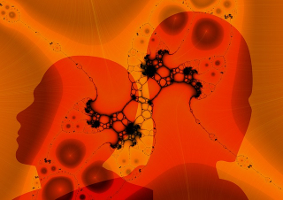
Foundations of psychological science
Learn about the emergence of psychology as a scientific discipline, contemporary approaches to studying psychology, the methods used by psychological scientists, and the brain and nervous system.
What’s it about?
This course is the first of three micro-courses that jointly constitute the OERu Introduction to Psychology I course. It provides an introduction to the history of psychology, the methods used by psychological scientists, and the biological basis of human behaviour.
What will I learn?
By the end of this course you will be able to:
- Explain why using our intuition about everyday behaviour is insufficient for a complete understanding of the causes of behaviour
- Describe the evolution of psychological science
- Outline the basic schools of psychology and how each school has contributed to psychology
- Distinguish between clinical psychology, counselling psychology, and psychiatry
- Describe the principles of the scientific method and explain its importance in conducting and interpreting research
- Differentiate the goals of descriptive, correlational, and experimental research designs and explain the advantages and disadvantages of each
- Explain the goals of descriptive research and the statistical techniques used to interpret it
- Summarize the uses of correlational research and describe why correlational research cannot be used to infer causality
- Review the procedures of experimental research and explain how it can be used to draw causal inferences
- Describe the structure and functions of the neuron
- Describe the pathways of communication within and between neurons
- List the major neurotransmitters and describe their functions
- Explain the structure of the cerebral cortex (its hemispheres and lobes) and the function of each area of the cortex
- Compare and contrast the techniques that scientists use to view and understand brain structures and functions
What’s involved?
- Completing readings and watching videos
- Completing elearning activities
- Writing an exam (for learners taking the course for academic credit)
Prerequisites?
Anyone is free to participate in this course. An internet connection and basic web browsing skills are recommended with the ability to create a blog and microblog account (instructions and self-study tutorials provided.)
What micro-courses are required for course credit?
Learners are required to complete three micro-courses to gain credit for Introduction to Psychology 1:
- Foundations of Psychological Science
- Thinking, Learning, & Memory
- Evolution, Perception & Consciousness
Image credit: Neural pathway abstract by Geralt dedicated to the public domain.
Course Code:
IPSY101
Estimated Start:
2019Q1
Duration:
4 weeks,10 hours per week
Type:
Micro course
Assessments:
1 hour challenge exam
Course Credit:
Requirement for Introduction to Psychology 1
Additional Courses:
Thinking, learning and memory, Evolutionary psychology, consciousness and perception
Credential:
Certificate of general studies
Level:
1st year Bachelor’s
Who are the developers:
 Dr. Rajiv Jhangiani, is the University Teaching Fellow in Open Studies and a Psychology Professor at Kwantlen Polytechnic University in Vancouver, Canada, where he conducts research
Read More
Dr. Rajiv Jhangiani, is the University Teaching Fellow in Open Studies and a Psychology Professor at Kwantlen Polytechnic University in Vancouver, Canada, where he conducts research
Read More
 Dr. Farhad Dastur, is a cognitive and evolutionary scientist at Kwantlen Polytechnic University. Farhad’s involvement in open education weaves together three strands: teaching, research, and
Read More
Dr. Farhad Dastur, is a cognitive and evolutionary scientist at Kwantlen Polytechnic University. Farhad’s involvement in open education weaves together three strands: teaching, research, and
Read More





